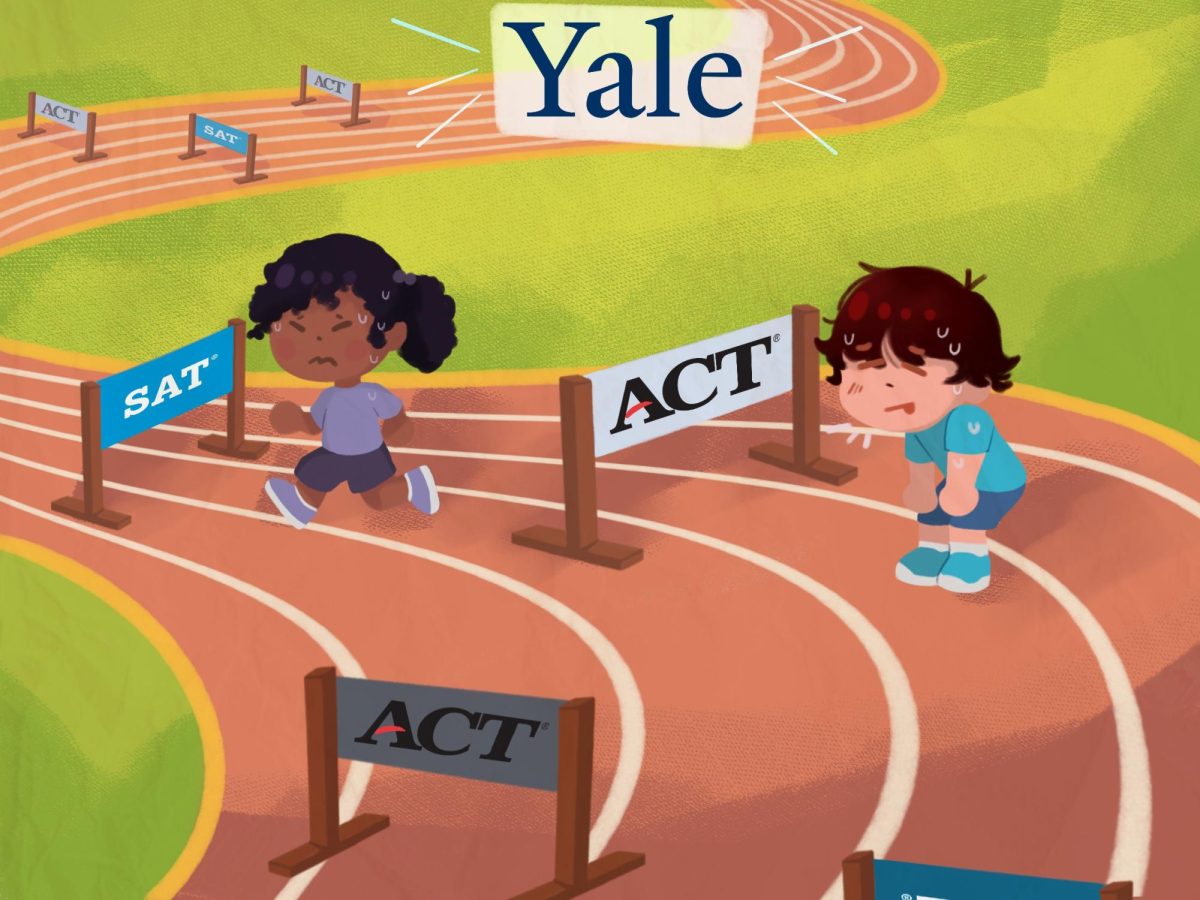Yale University reintroduces mandatory standardized testing after four years of being test-optional, dubbing the new policy as “test-flexible.” Although testing on its own is a flawed way of judging who would be a good student, allowing students to submit one of many different exams is a good way to include standardized testing without making it difficult on candidates.
With the returned addition of the mandatory testing, Yale applicants will have a wider array of testing options to send to the institution, such as the ACT, the Advanced Placement exam, the International Baccalaureate exam and the SAT.
Yale stated the initial reasoning behind its test-optional admissions was to gather data during the pandemic.
“The experience, originally necessitated by the pandemic, has been an invaluable opportunity to think deeply about testing policy and to generate new data and analyses. With testing availability now fully restored for prospective applicants around the world, we have reevaluated our policy with the benefit of fresh insights,” Yale said in a statement.
The research conducted suggests socio-economically disparaged students suffered from the optional standardized testing once admitted. While students’ extracurricular activities demonstrated leadership and contributions to family and community, they revealed little about academic preparedness and left “admissions officers with scant evidence of their readiness for Yale.”
Opportunity Insights, a Harvard-based organization that collected the data, found that although high school GPA didn’t accurately predict academic success in college, when comparing students with the same high school grades, those with the highest standardized test scores achieve a first-year college GPA that is 0.43 higher than those with lower scores.
Additionally, the study reported that students who opted not to submit scores, on average, achieve lower college GPAs when attending an Ivy League institution.
Although the pool of applicants increased during the period of optional testing, particularly from different social and minority groups, there was less to show of their academic performance in comparison to their more privileged counterparts.
Still, standardized testing isn’t an accurate way to measure intelligence due to the existence of test anxiety, which is recorded as being so intense that it caused students to not perform to their best abilities.
Yale understands this and made a statement on the imperfection of standardized tests, writing that “no exam can demonstrate every student’s college readiness or perfectly predict future performance. Yale has not, does not, and will never rely on testing alone to assess student preparedness.”
However, in the same statement the university noted that a student’s test scores can “fill in the gaps” on important information pertaining to their academic performance.
A combination of standardized testing, class performance, involvement in the community and recommendation letters is a more accurate way to judge a student’s intelligence and dedication to their education.
There are still Ivy League universities that don’t require standardized testing, two of those being Brown University and Columbia University. However, other institutions such as Harvard University, plan to return to mandatory standardized testing in 2026.






